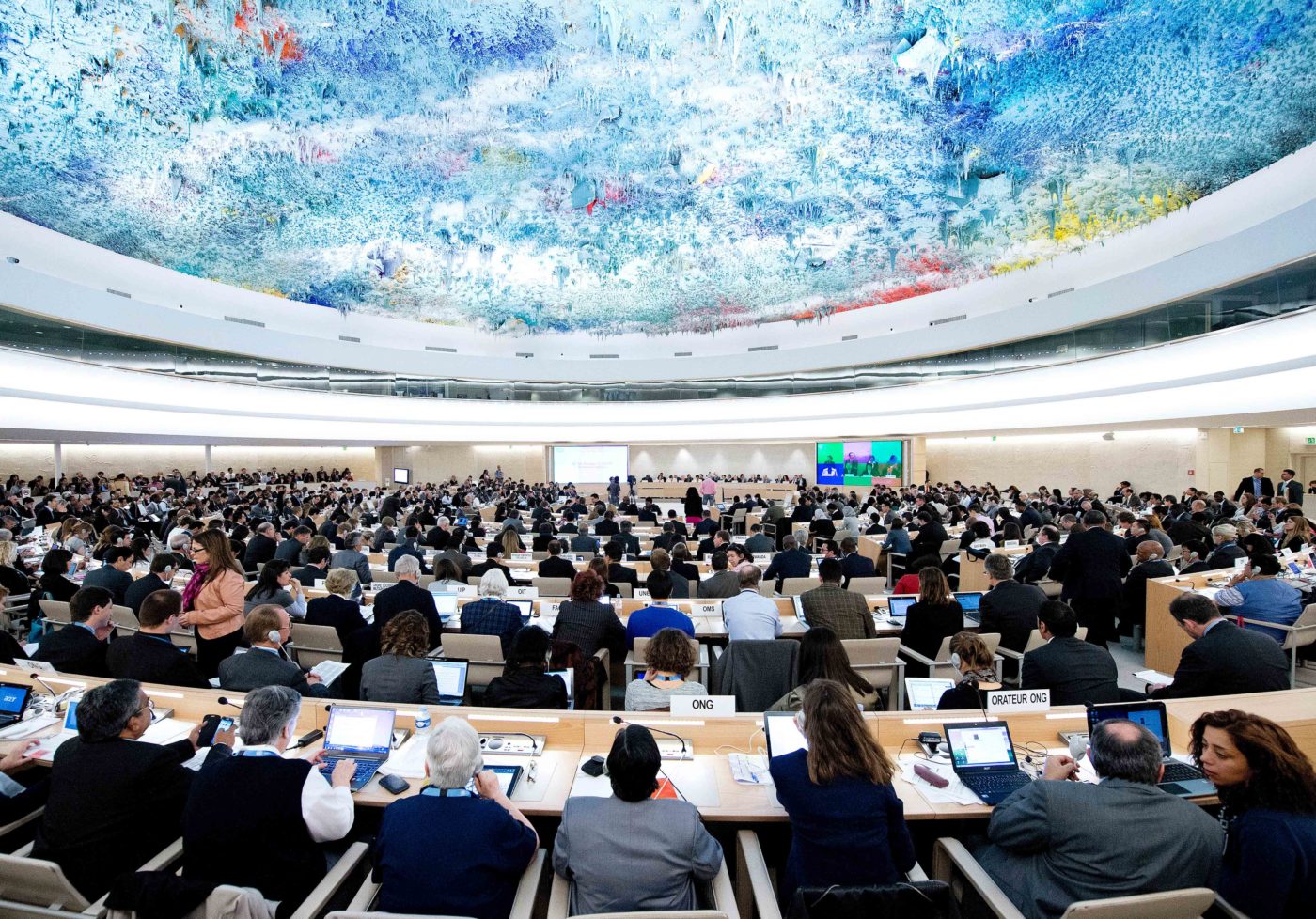The ICJ calls on the Tunisian authorities to accept the recommendations made by various UN Member States during the Universal Periodic Review (UPR), and urgently address the acute rule of law crisis in the country.
On 8 November 2022, during Tunisia’s fourth UPR, UN Member States expressed concern about the deterioration of the human rights situation in Tunisia, and, among other issues, urged the Tunisian authorities to:
- uphold the separation of powers, the rule of law and the independence of the judiciary;
- end all violations of the rights to a fair trial and to freedom of expression; and
- protect the rights to freedom of assembly and association.
“Tunisia has been in a state of exception for over a year. Unless a democratic Constitutional order that guarantees the right of all Tunisians to take part in the conduct of public affairs is re-established in full respect of the rule of law, the separation of powers and judicial independence, Tunisia’s human rights pledges will remain mere lip service.” said Said Benarbia, Director of the ICJ MENA programme.
At least 11 Member States expressed concern over the increasing practice of prosecuting civilians, notably journalists and human rights defenders, before military tribunals, and called for the Military Justice Code to be amended to end this practice.
The ICJ urges Tunisia to accept these recommendations and immediately end all ongoing trials of civilians in military courts, including by taking concrete steps to explicitly restrict the military tribunals’ jurisdiction exclusively to cases involving members of the armed forces for specifically, narrowly defined, military offences.
Of particular concern during this UPR session was the dismantling of judicial independence and the continuous interference of the executive with the judiciary since President Kais Saied’s power grab of 25 July 2021. Indeed, at least 10 Member States raised concern about the independence of the judiciary.
The ICJ calls on Tunisia to revoke Presidential Decree 2022-11 on the establishment of a Temporary High Judicial Council and Decree 2022-35 giving the President the power to unilaterally dismiss judges without due legal process; and to reinstate the judges summarily dismissed by presidential decree on 1 June 2022.
To comply with international standards, the Tunisian authorities must end any executive interference in aspects related to the selection, appointment, transfer and disciplining of judges. To this end, they must immediately end the President’s powers in relation to the suspension or removal of judges; end all forms of harassment or reprisal against Tunisian judges asserting their independence exercising their freedom of association , and they must respect the right of all members of the judiciary to the freedom of expression, association, and assembly.
Freedom of expression in Tunisia is threatened by a draconian Decree 2022-54, promulgated on 13 September 2022 by President Saied. During Tunisia’s UPR, more than five States expressed concern over this Decree that allows authorities to control what people, including journalists and human rights defenders, say online and offline, and under which they risk being punished if what they say is deemed critical of public officials, in violation of Tunisia’s obligations under international human rights law.
The ICJ calls on the Tunisian authorities to revoke this decree and drop all charges against anyone being prosecuted solely for the legitimate exercise of their freedom of expression.
Finally, the ICJ notes that the UN Special Rapporteur on the Independence of Judges and Lawyers made two visit requests to Tunisia during the last year. As the Tunisian authorities have failed to respond to these requests, the Special rapporteur has not been able to conduct an official visit to Tunisia. This is the first time that a UN expert is not able to visit the country since Tunisia extended an open invitation to all UN Special Procedures in February 2011.
“Instead of closing the door to the Special Procedures of the Human Rights Council, the Tunisian authorities must reverse their course and show courage and political will in addressing the serious human rights concerns expressed by States and other stakeholders.”
Background:
The Universal Periodic Review (UPR) process is an opportunity for United Nations Member States to examine each other’s human rights records and offer recommendations. All States go through the UPR process every six years.
On 30 March 2022, the International Commission of Jurists (ICJ) made a submission to the Working Group on the Universal Periodic Review, addressing worrying developments in the human rights situation in Tunisia and making appropriate recommendations.
Contact
Said Benarbia, Director, ICJ Middle East and North Africa Programme; t: +41 22 979 3817, e: said.benarbia(a)icj.org
Fida Hammami, Legal Adviser, ICJ Middle East and North Africa Programme, e: fida.hammami@icj.org




